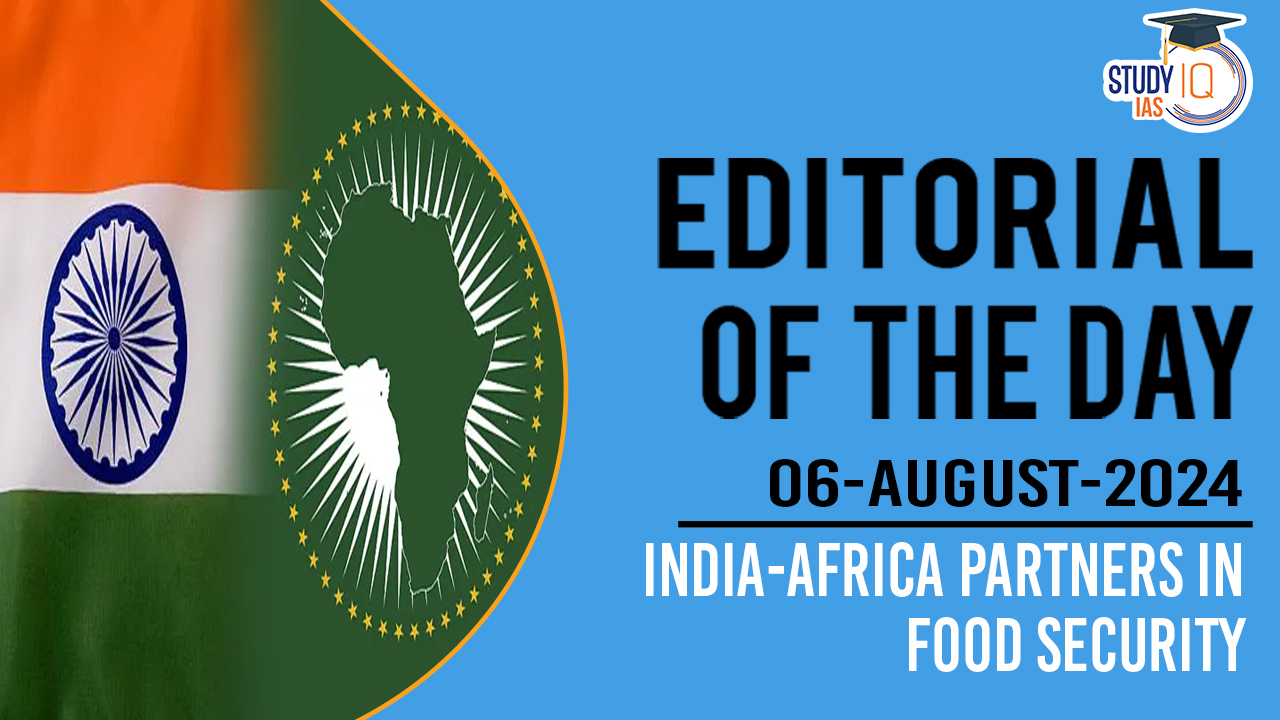Table of Contents
Context: The 32nd International Conference of Agricultural Economists is being hosted by India in Delhi.
More in News
- India last hosted this event in Mysore in 1958 with then-Prime Minister Jawaharlal Nehru. The conference traces its roots back to India, with Lord L.K. Elmhirst, influenced by Rabindranath Tagore, as its founding president.
- Prime Minister Narendra Modi and Agriculture Minister Shivraj Singh Chouhan are the chief and guest of honour, respectively.
Historical Background and Motivation
- The idea for the ICAE was inspired by Tagore’s concern for villages around Santiniketan in the early 1920s. Tagore envisioned using agriculture to revitalise rural India, a vision that eventually contributed to the formation of ICAE.
- Tagore’s vision was aimed for holistic rural freedom, emphasising education, scientific training, and cultural enrichment to uplift rural communities.
Significance and Goals of ICAE
- Global Food and Nutritional Security: The conference focuses on critical issues like the world’s food supply and nutritional security, which are exacerbated by climate change and geopolitical conflicts.
- India’s Agricultural Successes: Discussions highlight India’s achievements in the Green Revolution and the White Revolution, contrasting with ongoing food security challenges in Africa.
- South-South Collaboration: The inclusion of the African Union in the G20 during India’s presidency is seen as a step towards enhancing collaboration on agricultural and food security between India, Africa, and other southern nations.
Comparative Study of Indian and African Agricultural Practices
- Scope of Study: The session compared experiences from 20 major Indian states with 15 African countries from 2004-05 to 2019-20.
- Key Findings:
- High debt service ratios in African countries lead to reduced agricultural spending.
- African countries underfund agriculture relative to Indian states, impacting productivity and child nutrition.
- Both regions invest insufficiently in agricultural R&D, which has high returns.
- There’s a need to reform subsidies and focus more on infrastructure and R&D to boost agricultural growth and improve nutrition.
Global Food Security
- UN Goals: Highlighting the challenge of meeting the United Nations’ zero hunger goal by 2030 amid rising conflicts and climate issues.
- Required Investment: An additional $21 billion annually needed to end global hunger by 2040, according to a study by the University of Bonn and FAO.
- G20 Impact:
- India’s G20 presidency focused on food security and bioeconomy strategies.
- Brazil, following India, continues to advance these themes, with China also launching its bioeconomy strategy.
- The sequence of G20 presidencies (Indonesia, India, Brazil, and upcoming South Africa) reflects a shift towards addressing Global South issues, particularly in food systems governance.
Future Directions
- South-South Collaboration: Emphasis on strengthening South-South cooperation, particularly in adapting agricultural systems to climate impacts and transforming food systems through innovations.
- Role of G20: The sequence of G20 presidencies (Indonesia, India, Brazil, and upcoming South Africa) reflects a shift towards addressing the needs of the Global South in food system governance.


 Places in News for UPSC 2025 for Prelims...
Places in News for UPSC 2025 for Prelims...
 New Phase of Operation Chakra to Combat ...
New Phase of Operation Chakra to Combat ...
 Soyuz Aircraft: History, Design and Sign...
Soyuz Aircraft: History, Design and Sign...





















